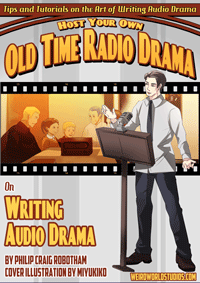Learning from Aristotle – The Poetics of Aristotle Applied to Audio Drama – Part 3
Today, I’m only travelling a short distance through Aristotle’s poetics. He is again presenting us with a series of definitions, but these definitions are highly practical (at least until we get to book XII which, I think, can be skipped without any real loss occurring). If we use these definitions as a guide, we gain […]

